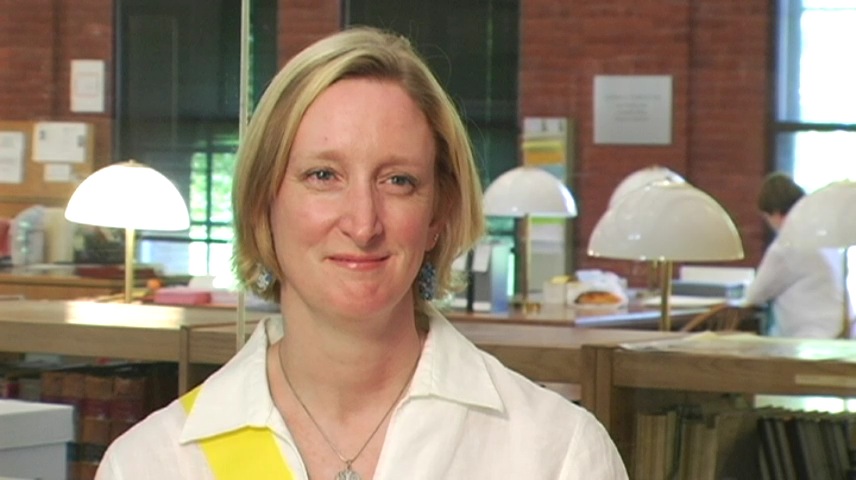
Alumnae Oral Histories
1980-1989
| The decade that brought you Madonna, Gorbachev, Thatcher and Reagan, Pac-Man, MTV, the IBM-PC, also brought a series of tensions to Smith College: struggles of the lesbian community on/off campus; a push towards engaging feminist ideals in the classroom; the increased number of women of color on campus, and the subsequent racial tensions. Student activism centered around South African apartheid. Smith’s growing pains were laid out on the campus community and disagreements were not always handled well. College president Mary Maples Dunn opens up a community dialogue on race relations and lesbian issues. |
Full videos
Scroll down for a list of narrators and links to transcripts.
Narrators
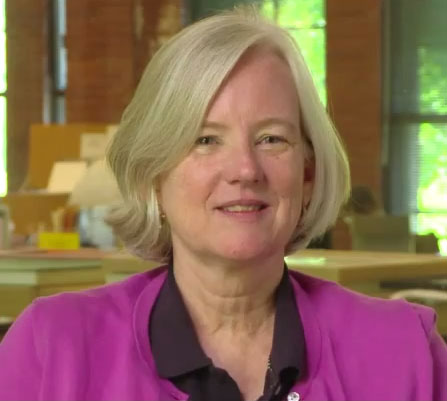 Jennifer Dandy, Class of 1980
Jennifer Dandy, Class of 1980
Jenny Dandy recollects her move from California to Massachusetts and her transition into the Smith community. She discusses the ‘typical Smithie’ style, academic areas of interest, memorable professors and poignant classroom experiences. Dandy also the political climate on campus in the late 1970s with the arrival of the Women’s Studies Program and Lesbian Alliance student organization that vocalized LGBT issues.
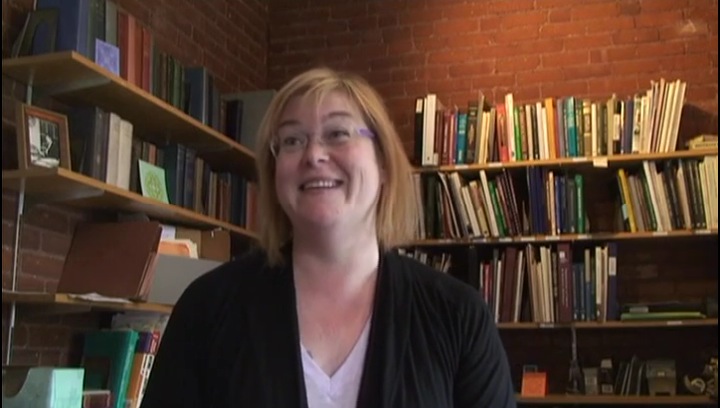 Elaine Bennett, Class of 1981
Elaine Bennett, Class of 1981
In this oral history, Elaine Bennett discusses her initial reactions to Smith, her experiences living in Ziskind House, and her work as a theater major. Bennett also describes the dialogues surrounding feminism during the late 1970s and early '80s, the lesbian community on campus, and what it feels like returning to campus for reunion.
Carole DeSanti, Class of 1981
In this oral history, Carole DeSanti describes why she decided to attend Smith and what it was like to adjust to the new atmosphere, her work as an English major, and her Marxist feminist philosophy. DeSanti also discusses the Lesbian Alliance and issues of sexuality, Hover House, reactions to the national press coverage of Smith in the early 1980s, and her opinion of President Conway.
Access to this interview is restricted. If you would like to view the transcript, please email Nanci Young at nyoung@smith.edu.
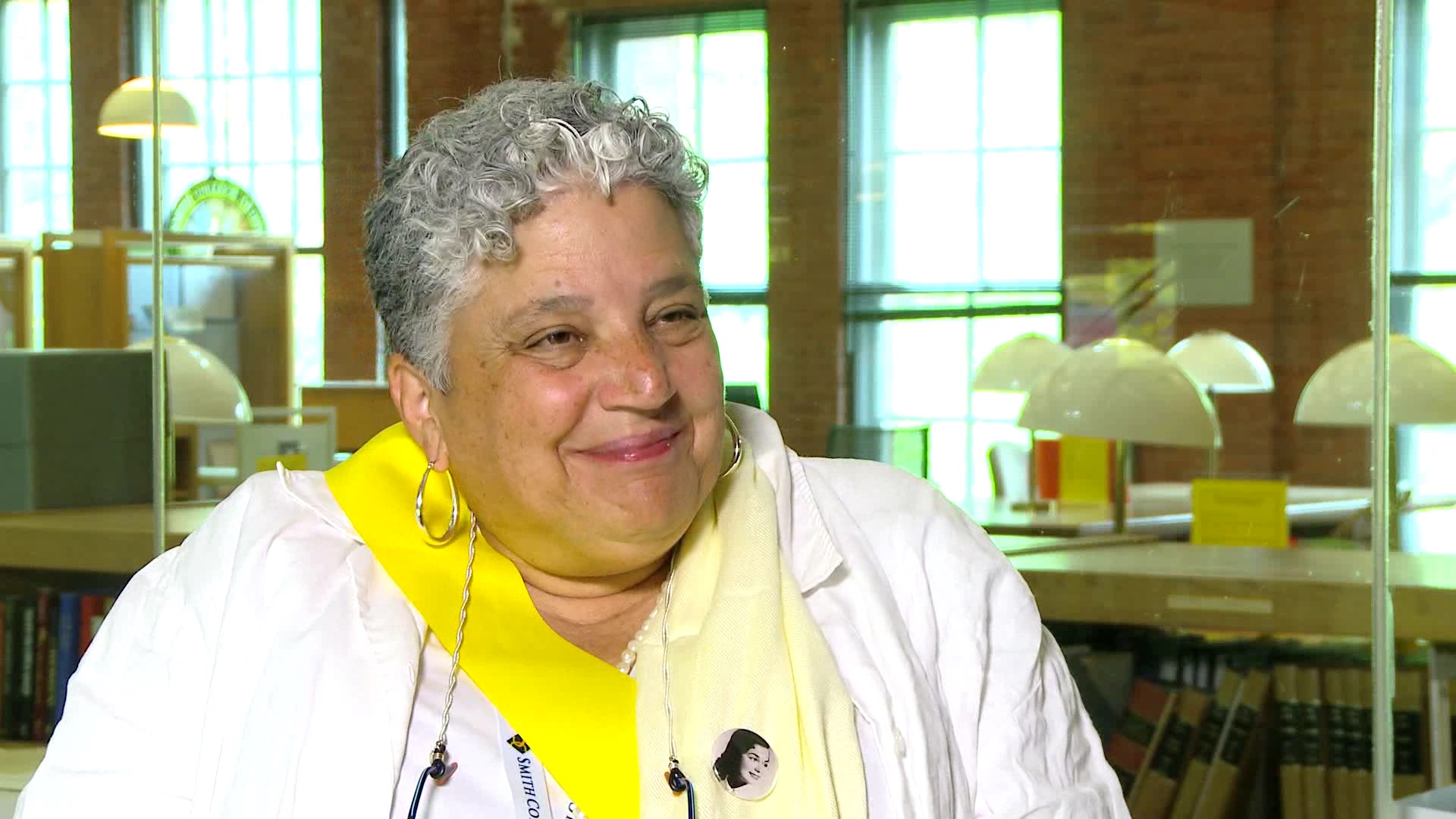 Francesca Grifo, Class of 1981
Francesca Grifo, Class of 1981
In this interview, Francesca Grifo talks about how she chose to major in Biology, found mentors in the department, and found community on the Crew team. She also looks back on her time as Head Resident of Dawes House. Grifo delves into her current work at the Environmental Protection Agency, and tells the story of how she got there.
Access to this interview is restricted. If you would like to view the transcript, please email Nanci Young at nyoung@smith.edu.
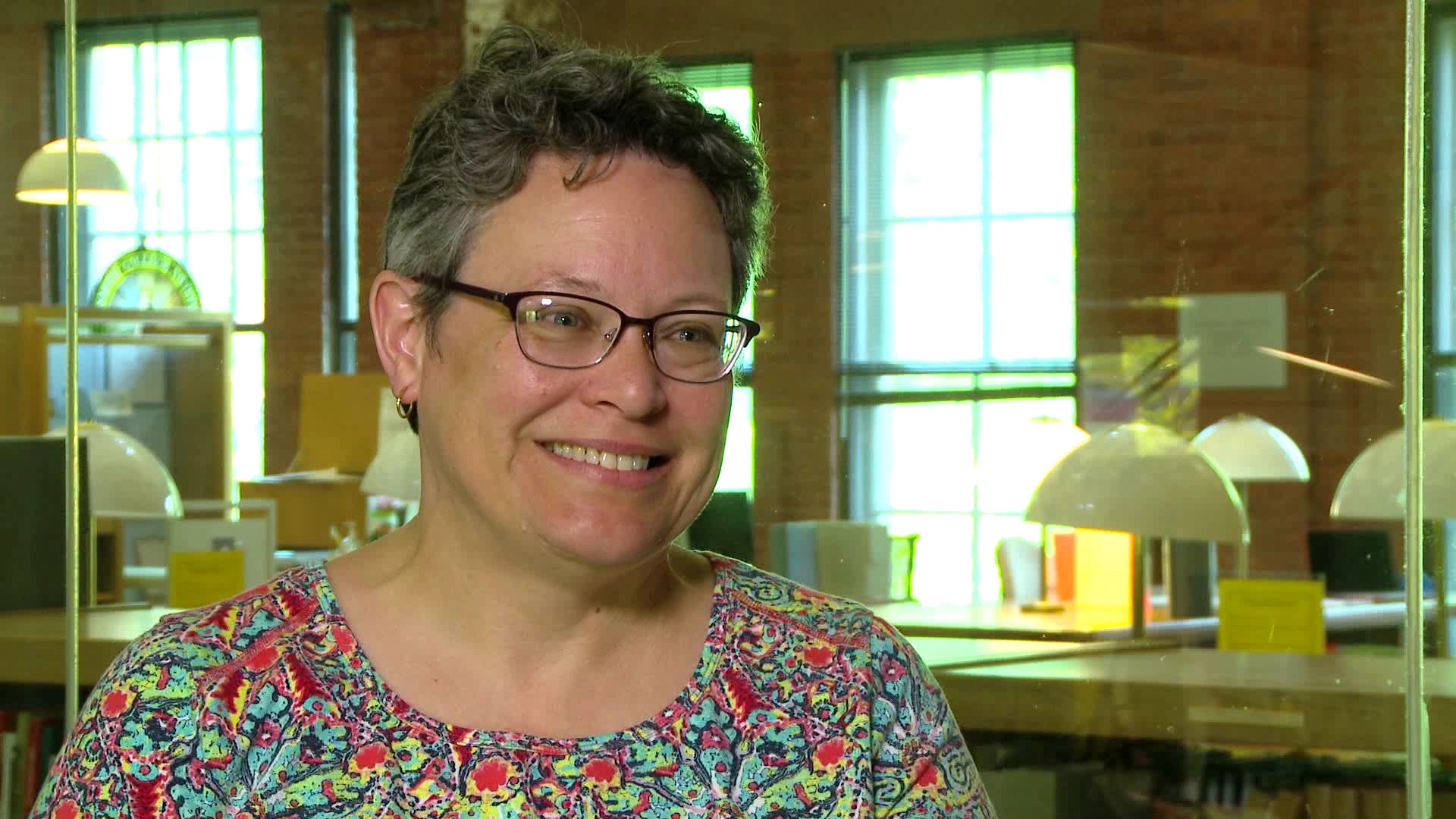 Catherine Kay, Class of 1981
Catherine Kay, Class of 1981
In this interview, Catherine (Cathy) Kay talks about the powerful influence the Smith College Music Department had on her life, both as a student, and beyond. Kay was a History major, but found community and friendship through her participation in the Smith College Choirs as a singer and accompanist. Kay also remembers her favorite traditions of Washburn House.
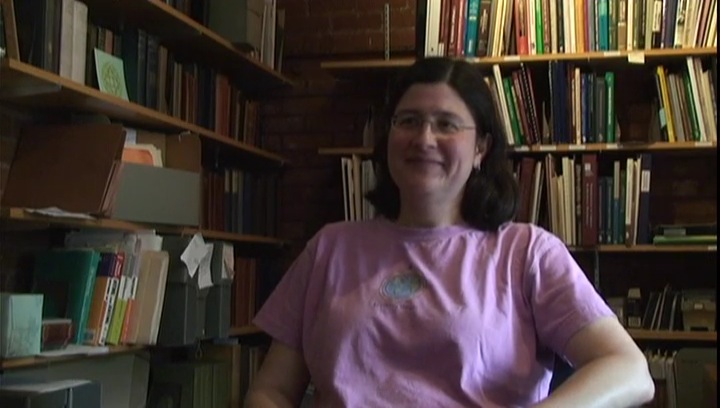 Kit Wang, Class of 1981
Kit Wang, Class of 1981
In this oral history, Kit Wang describes the overall campus atmosphere (especially in regards to lesbianism, homophobia, and race), her experiences living in Hubbard House and Hover House, her work as a biochemistry major, her participation in the first national gay rights march on Washington, her involvement with the Lesbian Alliance, her experiences in seminary, and her current work as an Episcopal priest.
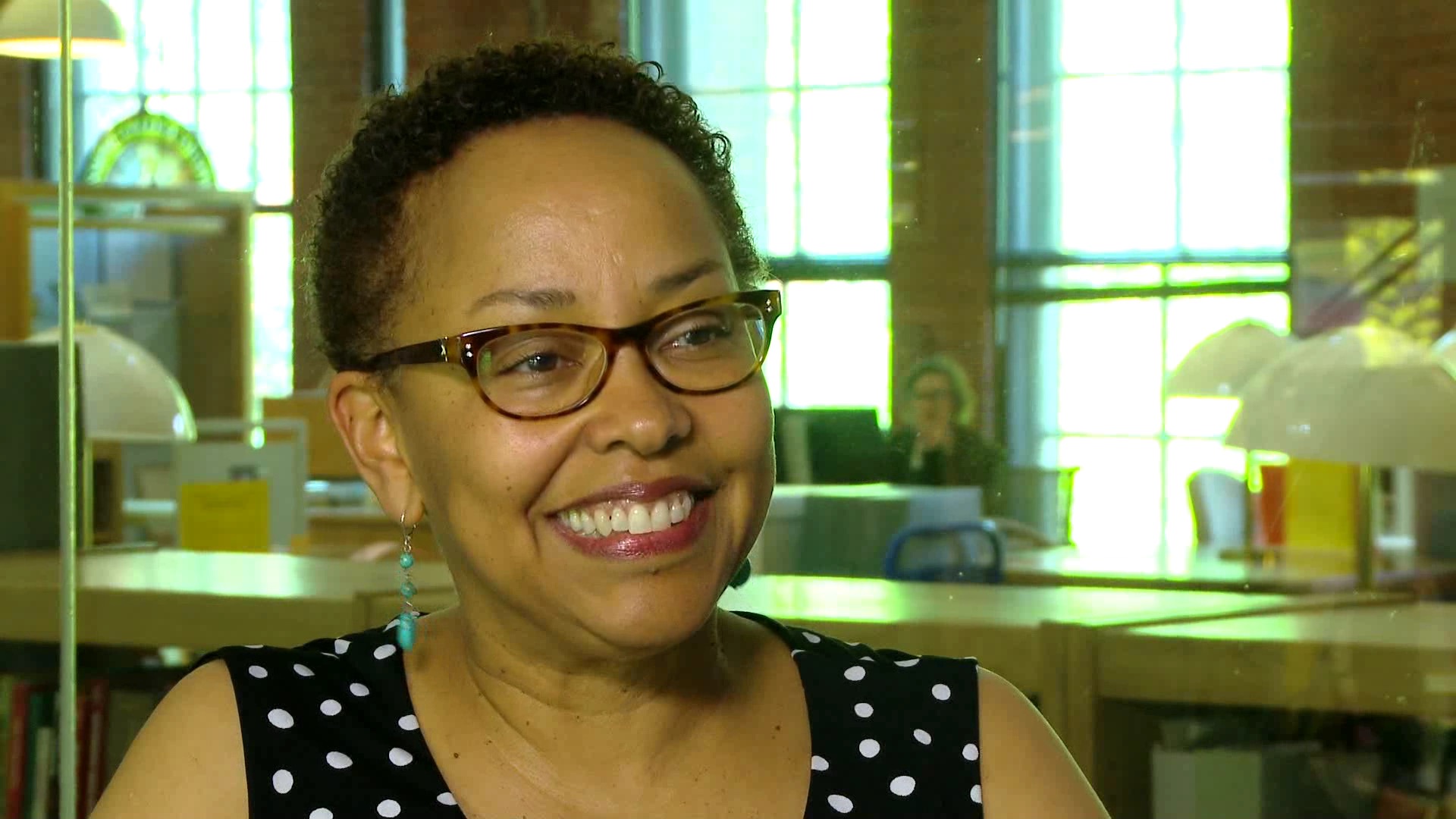 Serena Williams, Class of 1981
Serena Williams, Class of 1981
In this interview, Serena Williams remembers her introduction to Smith, focusing especially on the Bridge Program providing support to new students of color as an integral part of her Smith experience. Although she was an economy major, Williams recounts her experiences with racism on campus, as well as time spent building community amongst other women of color at the Mwangi Cultural Center. She also talks about her strong house community and favorite traditions, as well as her tenure as President of the Student Government Association.
Group Interview with Members of the Class of 1982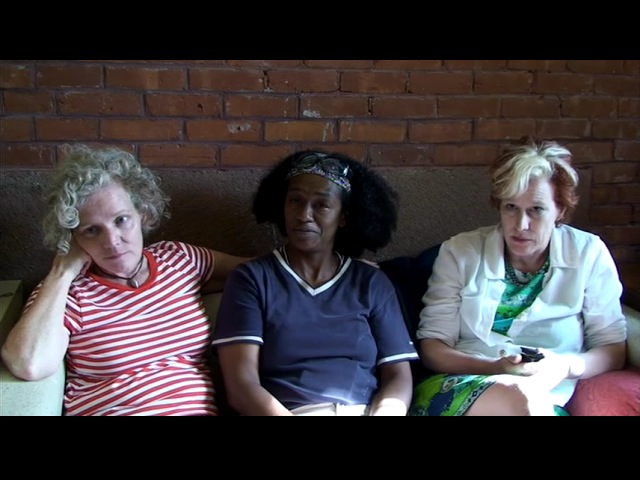
In this oral history Caroline Ely, Winn Gilmore, and Susan Marcoux discuss their decisions to come to Smith, the differences between the Smith and Northampton lesbian scenes, Hover and Tenney Houses as epicenters of lesbian culture at Smith, their experiences in Lesbian Alliance, homophobia and racial tension on campus, and the tensions in the lesbian communities at Smith.
Access to this interview is restricted. If you would like to view the transcript, please email Nanci Young at nyoung@smith.edu.
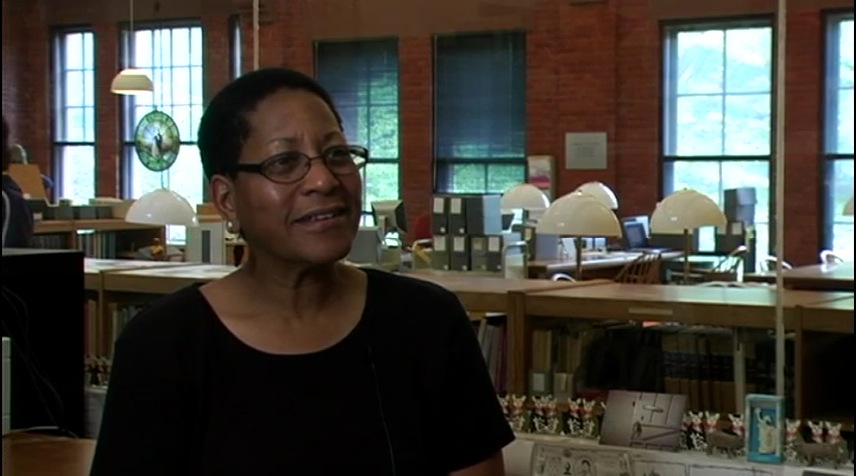 Nancy Davis, Class of 1982
Nancy Davis, Class of 1982
In this oral history, Nancy Davis describes falling in love with Smith and the importance of house community to her experience. She talks about racial dynamics on campus, her participation in the Bridge program, student activism, feminism, the changes she has seen at Smith, and her experience as a class officer for her reunion.
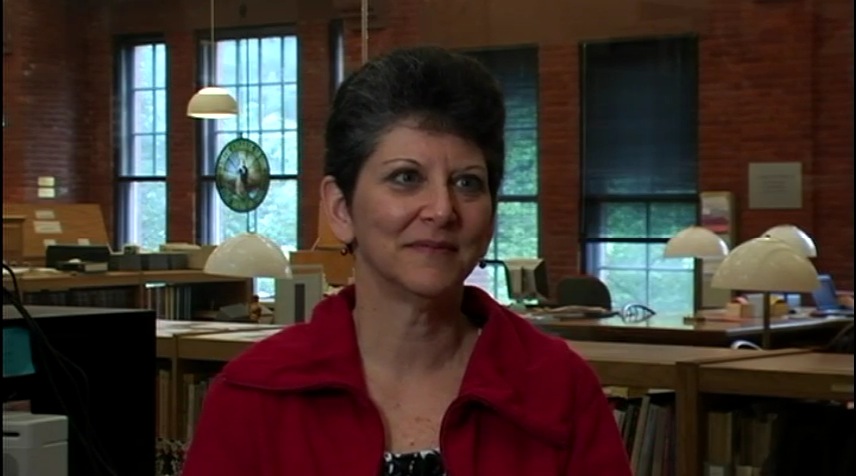 Jo Deutsch, Class of 1982
Jo Deutsch, Class of 1982
In this oral history Jo Deutsch discusses her house community in Baldwin House, the Northampton feminist and lesbian communities, President Conway, and her first relationship with a woman at the end of her senior year. She touches upon her work as a lobbyist for 27 years and her current position at Freedom to Marry.
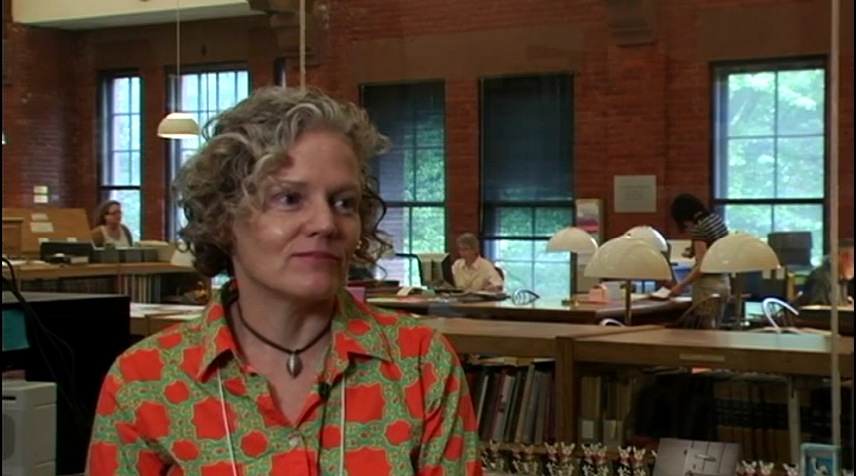 Sue Marcoux, Class of 1982
Sue Marcoux, Class of 1982
In this oral history, Susan Marcoux describes living in Albright House for two years, going abroad in Germany, living in Hover House for her senior year, the lesbian scene at Smith, her work with Lesbian Alliance, and building an intellectual Smith community in San Francisco after graduating.
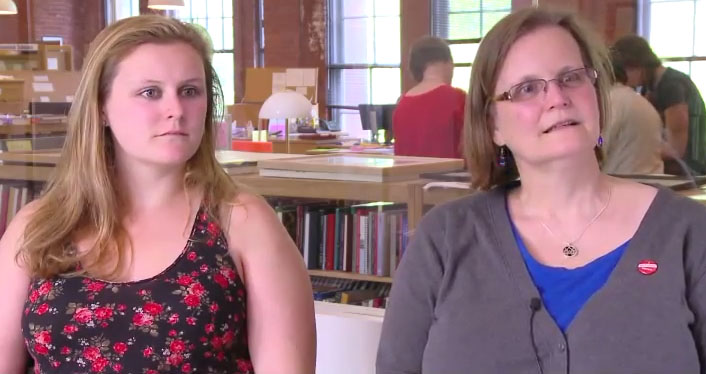 Katharine Swibold & Hannah Becker, Class of 1982 & 2015
Katharine Swibold & Hannah Becker, Class of 1982 & 2015
In this interview, Katharine Swibold and her daughter Hannah Becker recall their introductions to Smith and undergrad experiences. They tell personal stories about their study abroad experiences and compare and contrast the evolution of the campus, student body and political and social climates. Swibold discusses the importance of utilizing the Smith network after graduation and Becker discusses her plans for the future and how her Smith education has prepared her it.
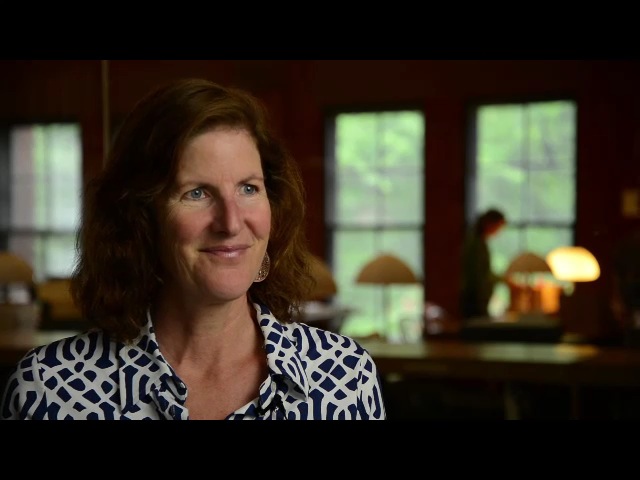 Lia Brassord, Class of 1983
Lia Brassord, Class of 1983
In this oral history, Lia Brassord, who has attended nearly every reunion since graduation, discusses the importance of that experience in her life. She reflects on the intergenerational bonds she has witnessed at Smith and the importance of the underlying qualities that cross those and other boundaries among Smithies.
Martha Engeman and Nancy Reif, Class of 1983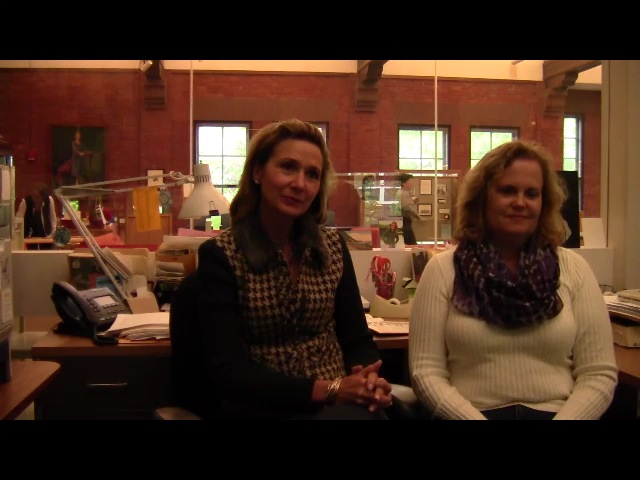
In this oral history taken during their 30th reunion weekend, Martha Clough Engeman and Nancy Hutchens Reif discuss how their meeting as freshmen led to a lifetime relationship as best friends. They recall traveling to Paris together, including visiting the Smith office, and reflect on the importance of Smith traditions, including Friday tea and Thursday night dinners. They remember political controversy on campus, such as an outcry against Jeane Kirkpatrick delivering the commencement address, as well as being on campus during the assassinations of Anwar Sadat and John Lennon.
Access to this interview is restricted. If you would like to view the transcript, please email Nanci Young at nyoung@smith.edu.
Susan Korgen, Class of 1983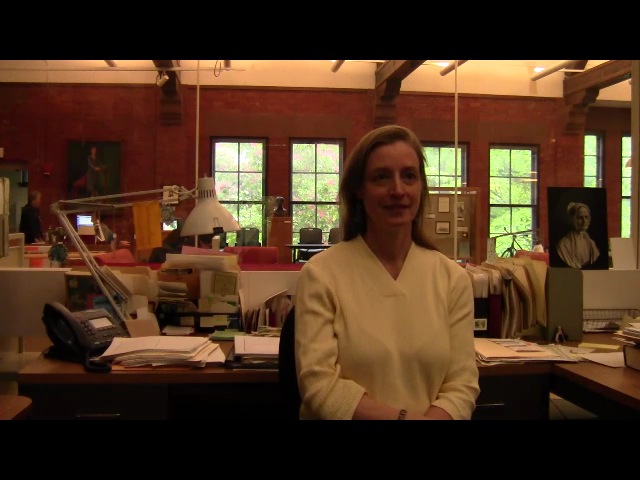
In this oral history Susan Korgen, who is back on campus for her 25th reunion, reflects on her decision to go to Smith and speaks about her experience as a scholarship student and the class and racial differences she observed in the student body. She speaks about the influence going to Smith has had on her career, including a foundation of self-confidence that she attributes to the even playing field that Smith created.
Access to this interview is restricted. If you would like to view the transcript, please email Nanci Young at nyoung@smith.edu.
Lori Lober, Class of 1983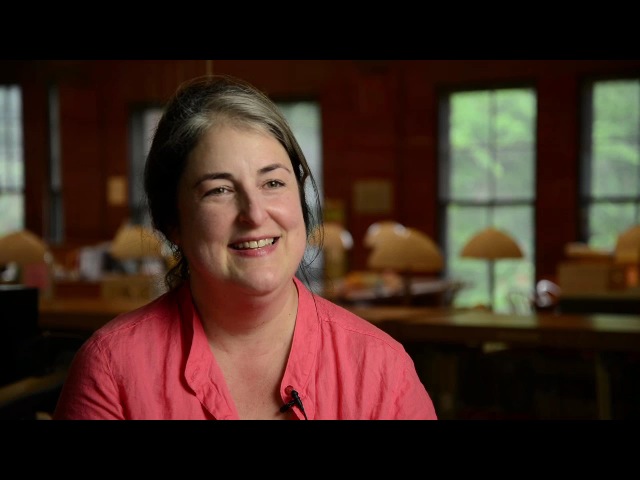
In this oral history, Lori Lober speaks of feminism and its role in her Smith experience, including activism around the Women’s Resource Center and the founding of Take Back the Night, as well as rape counseling and Lesbian Alliance workshops. She also recalls stories of her experience as part of the Jewish Students Alliance. She credits her Smith education with her ability to reason, make a cogent argument, and write effectively.
Access to this interview is restricted. If you would like to view the transcript, please email Nanci Young at nyoung@smith.edu.
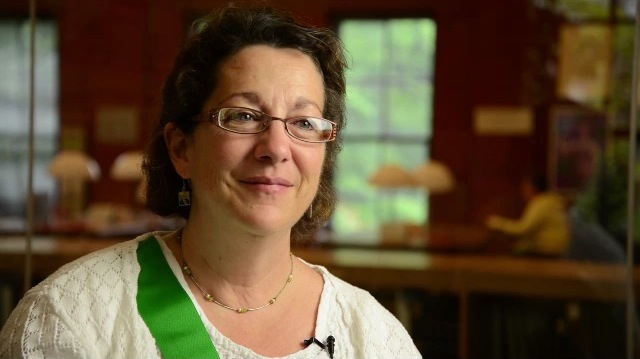 Leslie Mark, Class of 1983
Leslie Mark, Class of 1983
In this oral history, Leslie Mark, who serves on the Smith Board of Directors, discusses her strong connection to the college. She speaks of the continuing importance of the Smith network in her life and the local alumnae chapters she’s been a part of.
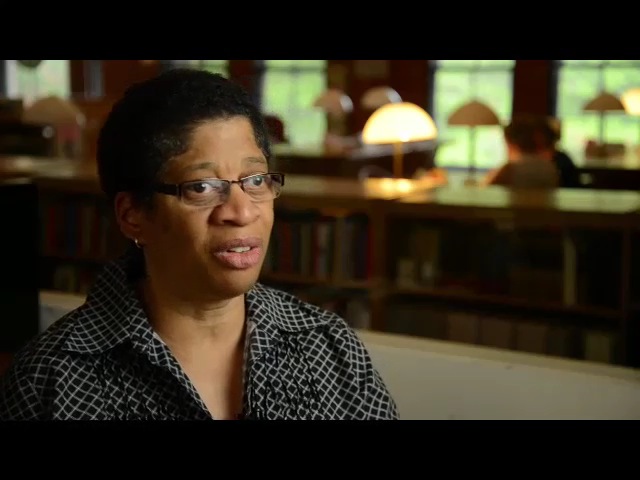 Camille O'Bryant, Class of 1983
Camille O'Bryant, Class of 1983
In this oral history, Camille O'Bryant speaks about the critical role that athletics played in her Smith career and about discovering later the historic role Smith played in women's sports. She reflects on the people such as Jill Ker Conway who helped her overcome the challenges Smith presented her with, and how that experience instilled in her the importance of giving back.
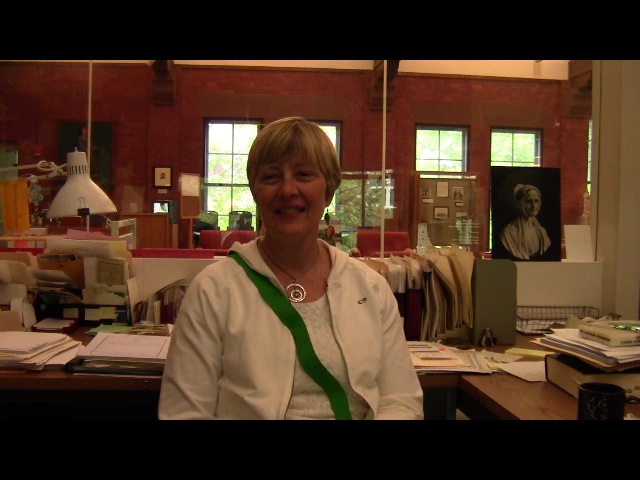 Berneta Walraven, Class of 1983
Berneta Walraven, Class of 1983
In this oral history, Berneta Walraven speaks about her the graduation commitment she made to attend Smith reunions and discusses the central role the crew team played in her Smith career. She speaks about her personal identity and political journey, and how that influenced her career as an activist.
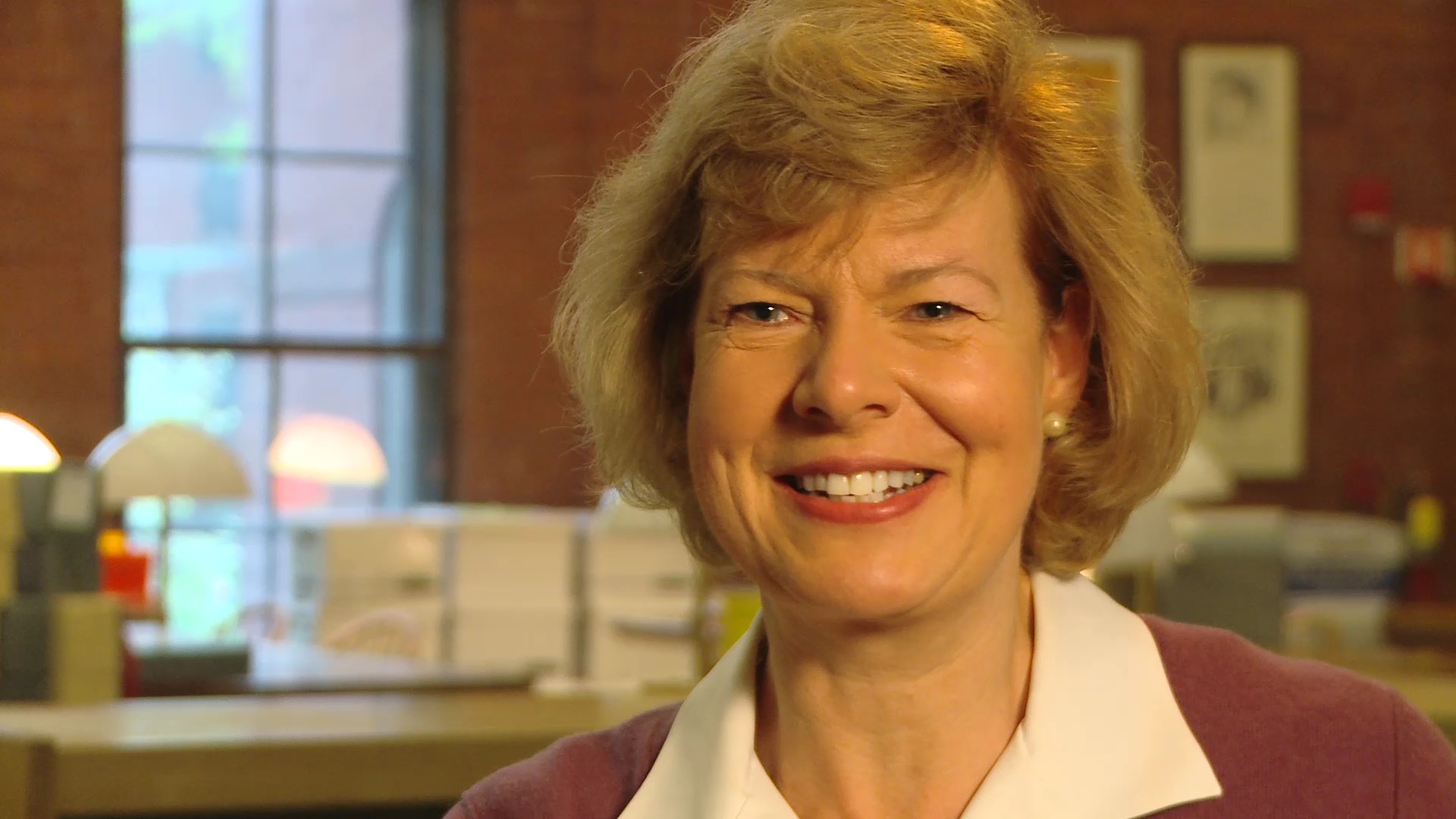 Tammy Baldwin, Class of 1984
Tammy Baldwin, Class of 1984
In this interview, Tammy Baldwin reflects on her time at Smith, including her favorite traditions and house community. She recalls coming out and the general campus attitude towards lesbians at the time. She also mentions the political controversies at Smith and beyond during her time here. Baldwin then talks about her journey to becoming the first openly lesbian senator and the shift from working with local Wisconsin politics to serving in the legislature. She talks about the experience of running for office as a woman and the difficulties associated with it. She speaks to her work on LGBT policy and offers advice to student activists and graduating Smithies. The interview ends with Baldwin offering ways to stay hopeful in the harsh political climate of the digital media age.
Karen Bouchard, Class of 1984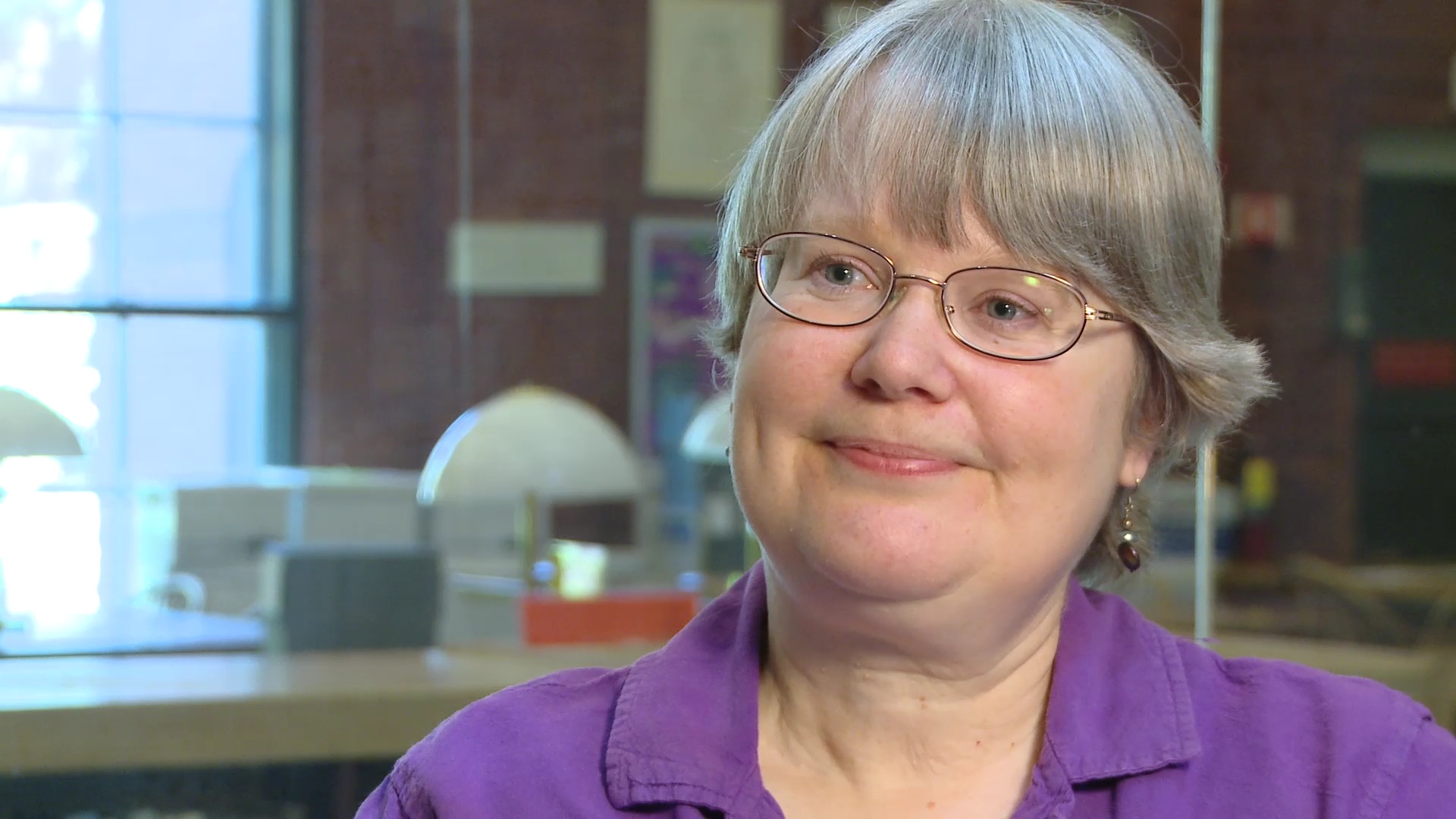
In this interview, Karen Bouchard recalls the good times had with her friends in Wilder House and her love of the house system. She talks about being an art history major and the professors in that department who had a strong influence on her. She goes on to discuss the political issues of her time on campus, including the election of Reagan. She brings up the tensions over the presence of lesbians at Smith, as well as the controversy over and consequences of inviting Jeane Kirkpatrick to speak at Commencement. Finally, she discusses the challenges of being a first-generation college student at Smith and ends by recalling the campus reaction to John Lennon’s assassination.
Access to this interview is restricted. If you would like to view the transcript, please email Nanci Young at nyoung@smith.edu.
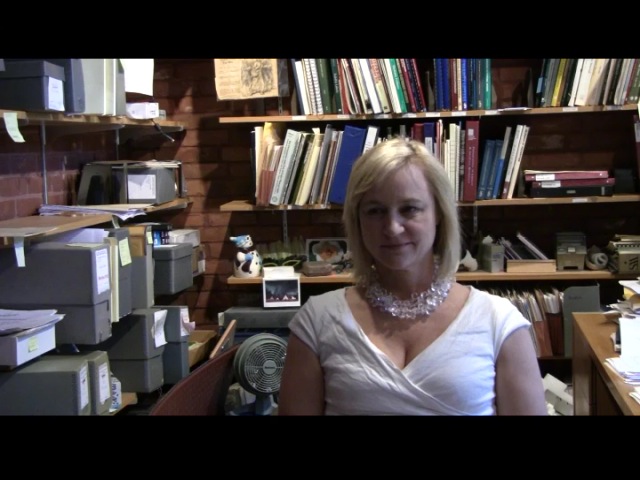 Erin Fray, Class of 1984
Erin Fray, Class of 1984
In this interview, Erin Fray recalls her experience living in Dawes House for her sophomore and senior years (she spent her junior year abroad). Mostly reflecting on the specific house activities and cultural community Dawes had to offer, Erin also speaks to the friendships she made at Smith. She concludes by describing Smith as an empowering place that celebrates diversity.
Shaun Hunter, Class of 1984
In this interview, Shaun Hunter talks about being an international student from Canada at Smith and how it shaped her experiences here. She describes her difficulty adjusting to Jordan House in the distinctly American setting of Smith College, and consistently feeling like an outsider in this regard. She discusses feminism in the context of being an English major and ponders what a “typical Smithie” may be. Hunter discusses Smith as a complex intersection of issues and experiences that she continues to reflect on. The interview closes with Hunter’s advice for future Smithies.
Access to this interview is restricted. If you would like to view the transcript, please email Nanci Young at nyoung@smith.edu.
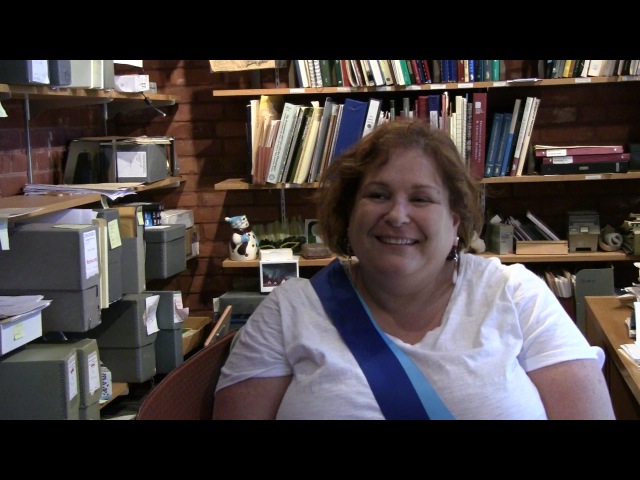 Theresa Kitay, Class of 1984
Theresa Kitay, Class of 1984
In this interview, Terry Kitay discusses her interest in history and African American studies, as well as her passion for civil rights. She talks about her perception of lesbians on campus in the 1980s. She also tells about her career as a housing discrimination lawyer since graduation. Finally, she remembers both the good times with her friends in 150 Elm and the challenges with which Smith presented her.
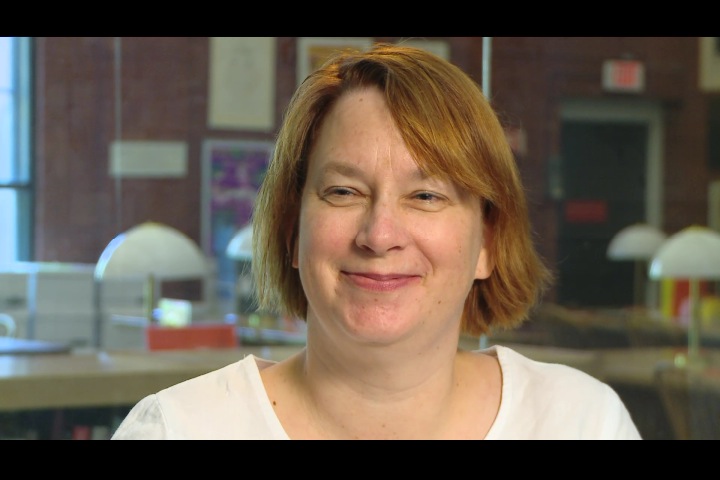 Molly McNulty, Class of 1984
Molly McNulty, Class of 1984
In this interview, Molly McNulty describes her time at Smith, beginning with her excitement about attending a women’s college. McNulty speaks to the experience of arriving and feeling academically overwhelmed, dealing with depression after arrival, and the strong house community that helped her through a challenging time. She describes her social life and issues on campus that prompted student organizing around race and sexual orientation. McNulty speaks to the Smith party scene and the low drinking age, which had a profound effect on issues of sexual violence on campus. She discusses Smith as a feminist school during the 1980s and the desire for students to shape their own experience. She also speaks to the presence of lesbian organizations on campus, sexual experimentation, and a general environment of excitement.
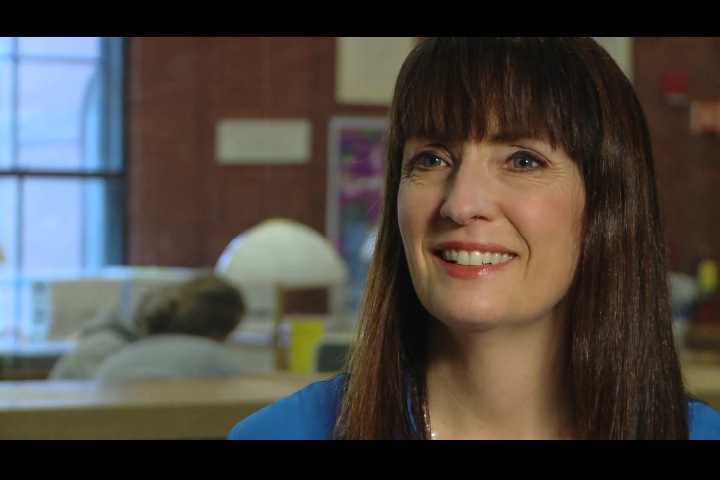 Elizabeth Risberg, Class of 1984
Elizabeth Risberg, Class of 1984
In this interview, Elizabeth Risberg recalls both social and academic life at Smith, as well as her experience as a Head Resident. She talks about the political culture on campus, the Jeane Kirkpatrick commencement speaker controversy, and the Reagan election. Elizabeth recalls the weekly dance parties at Smith that were a source of stress relief for many students. She talks about her career change from journalism to public relations after graduating from Smith, and ends the interview by advising current Smith students to explore their options and go abroad if possible.
Lisa Sankowski and Emily Newburger, Class of 1984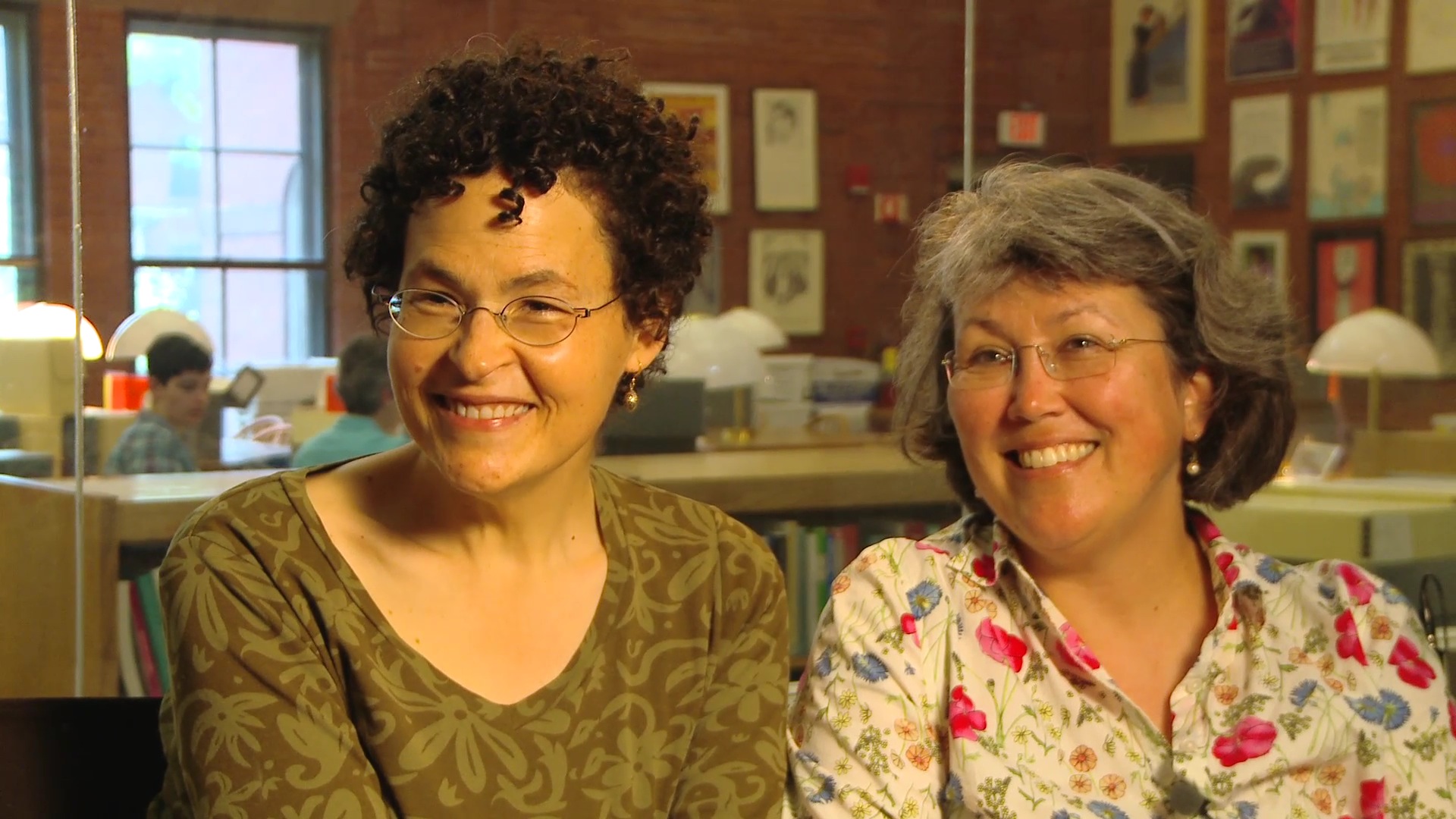
Emily Newburger and Lisa Sankowski begin their interview with the story of how they met in Park House, became friends, and eventually became romantically involved. They discuss the attitudes towards lesbianism on campus as well as the separatist culture present in Hover and Tenney Houses and the closing of Hover. Later, they talk about getting married, issues of gender identity on campus, and the normalizing of lesbianism in more recent years. Sankowski recalls her experiences being Head Resident of Jordan House, and both women talk about the parallels between the controversies over Jeane Kirkpatrick and Christine Lagarde being chosen as commencement speakers. Additionally, they remember favorite traditions from their time at Smith and describe their careers since graduation.
Access to this interview is restricted. If you would like to view the transcript, please email Nanci Young at nyoung@smith.edu.
Yvonne Garrett, Class of 1985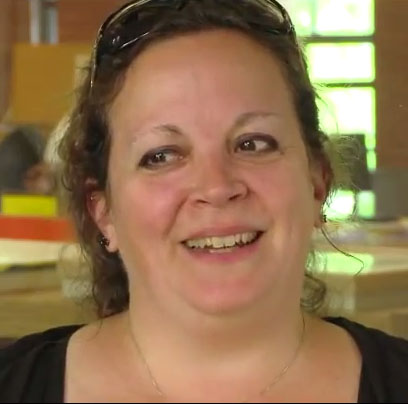
In this interview, Yvonne Garrett discusses the difficult acclimation to Smith and the fashion and culture that was popular on campus at the time. Garrett describes her experience as an outsider, a goth, and how the campus and student body has evolved since the 1980s. Garrett reflects on her post Smith career and what it’s like to return to campus and participate in the Smith traditions that she opposed as an undergrad.
Access to this interview is restricted. If you would like to view the transcript, please email Nanci Young at nyoung@smith.edu.
Ginna Hall, Class of 1985
In this oral history, Ginna Rohan Hall discusses growing up in Northampton and how that impacted her time at Smith. She recalls her experiences living in Baldwin, Northrop, and Morris, and her work as a psychology major. She also describes issues of diversity at Smith, and the impact that Smith has had on her life.
 Melissa Homestead, Class of 1985
Melissa Homestead, Class of 1985
In this oral history, Melissa Homestead discusses living in Lawrence House, Wilder House, and Parsons Annex, her experiences as an English major and her thesis on Willa Cather, and her participation in music clubs and the Lesbian Alliance. Homestead also describes issues surrounding sexuality and lesbianism, the Hover House controversy, incidents of homophobia and tensions between heterosexual and homosexual students, the Feminist and Lesbian Alumnae of Smith College (FLASC) group, and her experiences at the University of Pennsylvania.
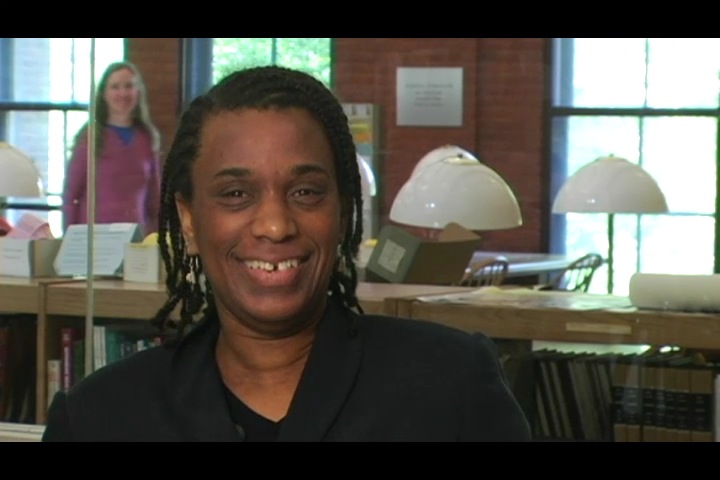 KP Perkins, Class of 1985
KP Perkins, Class of 1985
In this oral history, KP Perkins discusses why she decided to attend Smith, her involvement in extracurricular activities (including student activism), and her work as an Afro-American studies and French double major. She also describes the general campus atmosphere, particularly in regards to race, and her opinion of President Conway.
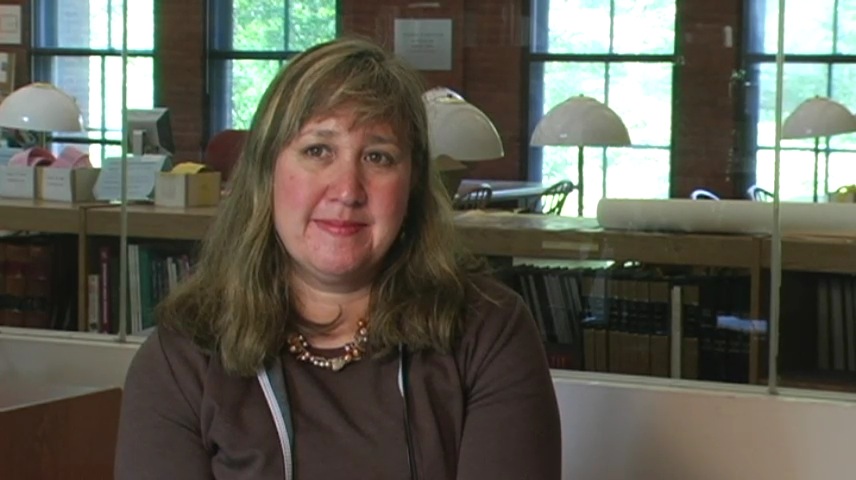 Ana Maria Tolentino, Class of 1985
Ana Maria Tolentino, Class of 1985
In this oral history, Ana Tolentino discusses how she decided to attend Smith, her departure from Smith to attend the University of Wisconsin in Madison for a semester, and her return to Smith. Tolentino also describes her time at Smith, including her experiences as an art history major and archaeology minor, and the atmosphere of the early 1980s.
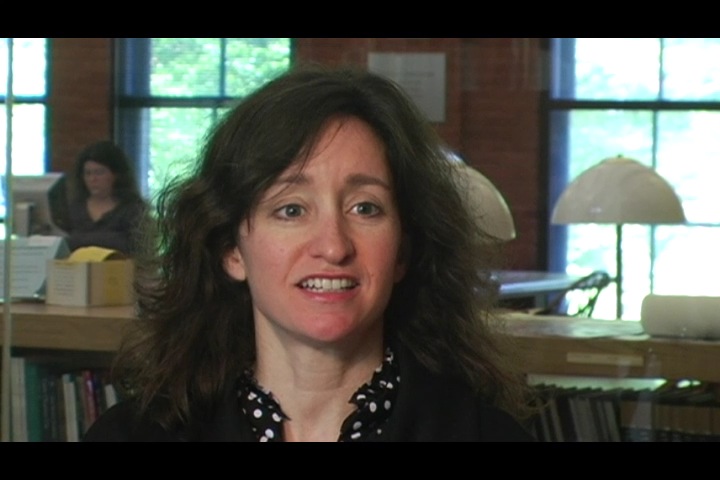 Mary Werner, Class of 1985
Mary Werner, Class of 1985
In this oral history, Mary Werner explains why she chose to attend Smith, her experiences with Student Senate, tutoring local children, and her work as a psychology major. She also describes the general campus atmosphere and diversity, her opinions on President Conway, and her life after Smith.
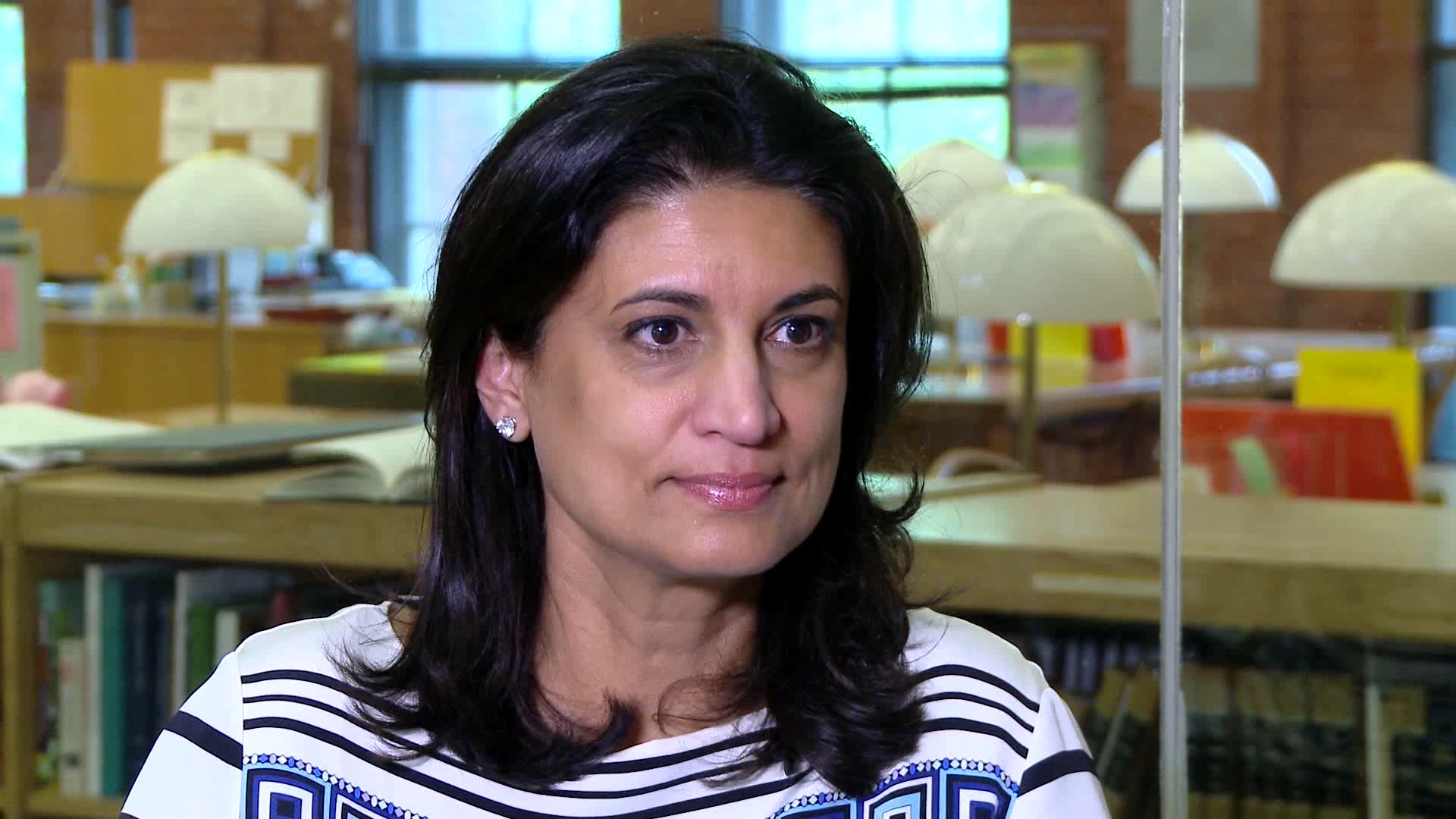 Neelum Amin, Class of 1986
Neelum Amin, Class of 1986
In this interview, Neelum Amin talks about her introduction to Smith, taking advantage of a liberal arts education, house community, and Smith’s social and political climate during the 80s. Amin lived in both Washburn and Talbot House, and was a member of the International Students’ Organization. Since graduation Amin has stayed connected to the Smith community through participation in the Smith Clubs.
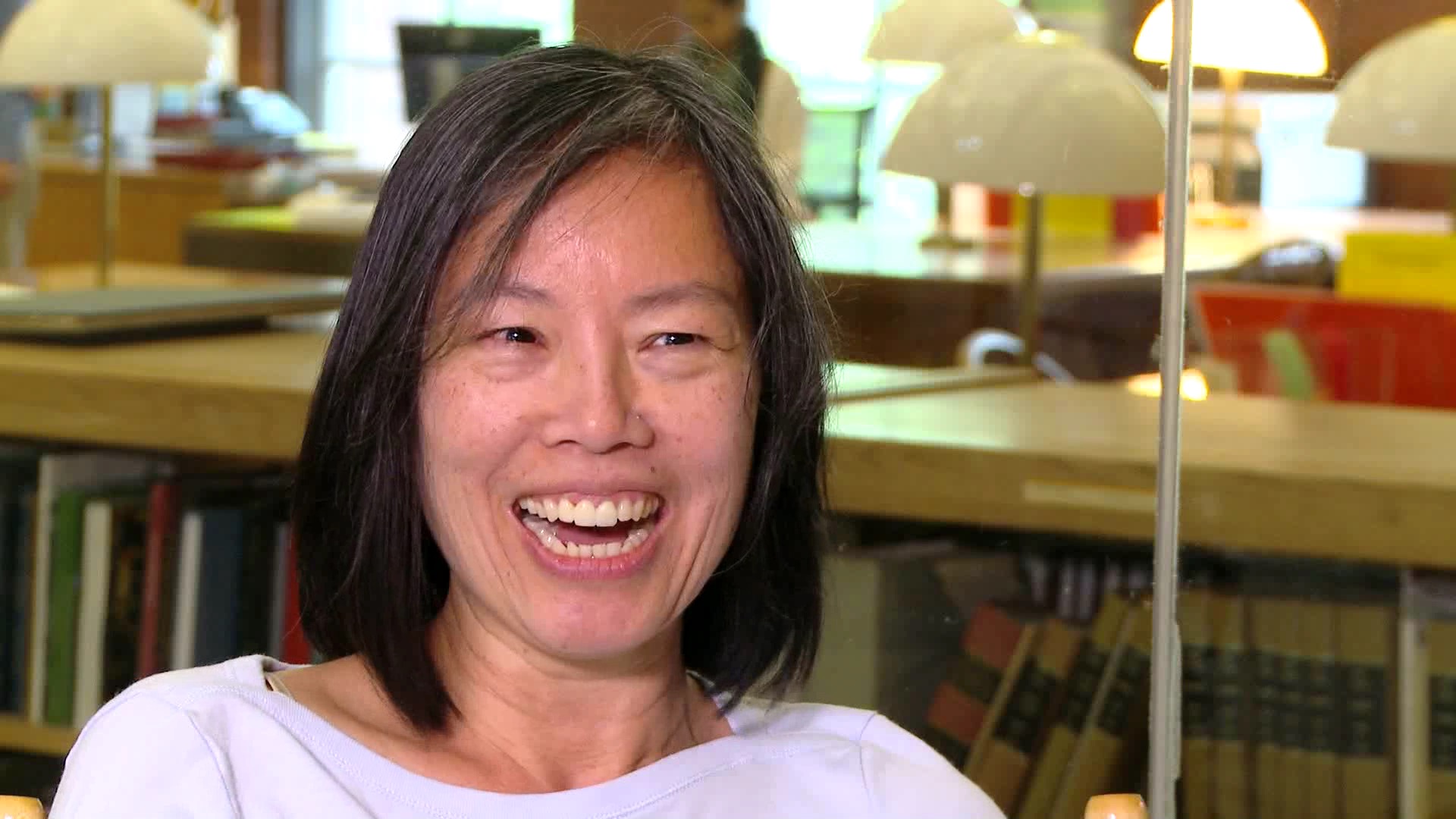 Mariquita Anderson, Class of 1986
Mariquita Anderson, Class of 1986
In this interview, Mariquita Anderson talks about her introduction to Smith through the Bridge Program. Anderson also looks back on her community in Gillett House, the sing a long’s around the house piano, and engaging conversations over Friday tea. Anderson reflects on the position of Asian American students in conversations of race, and the process of self-discovery at Smith and beyond.
Access to this interview is restricted. If you would like to view the transcript, please email Nanci Young at nyoung@smith.edu
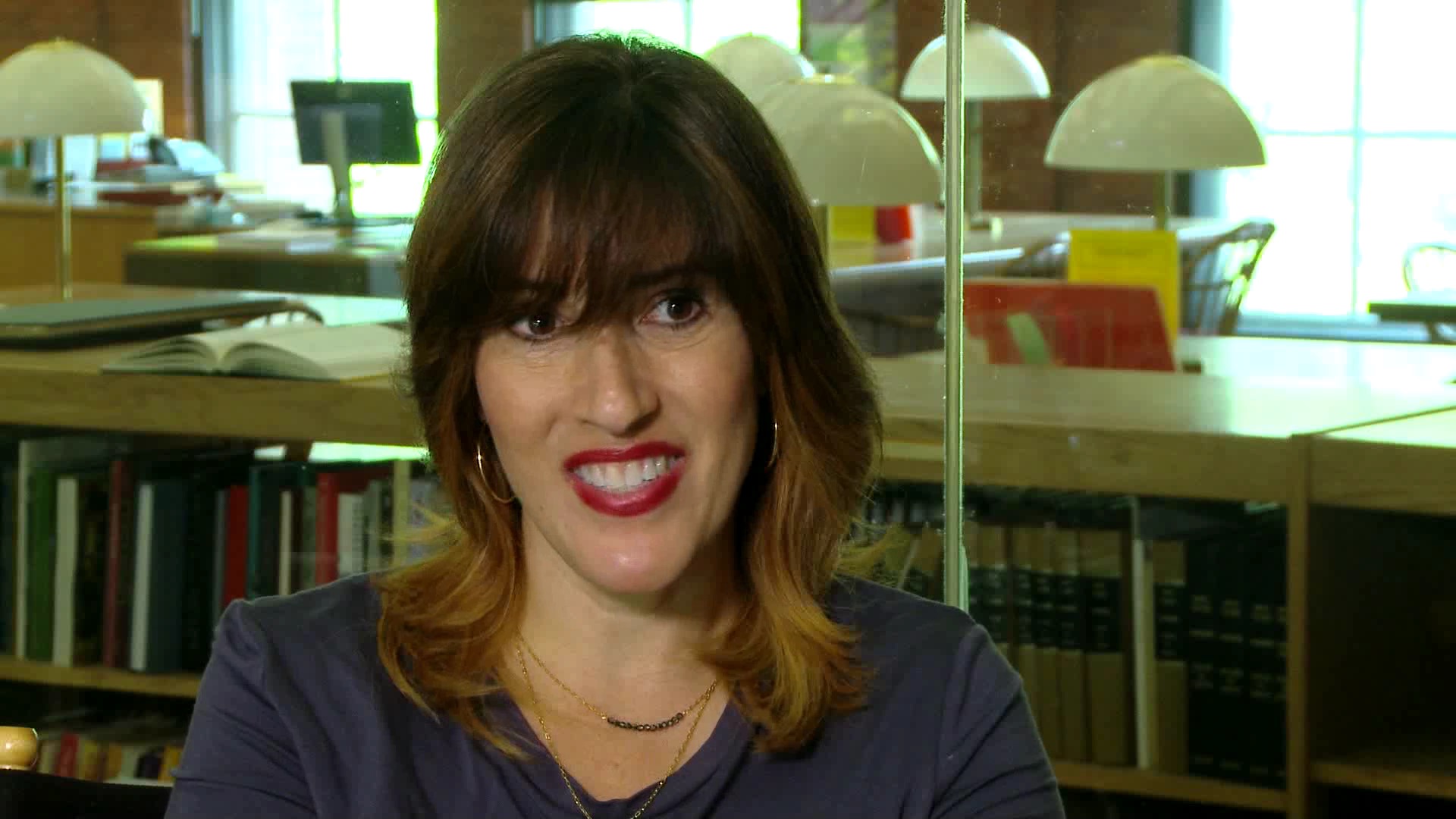 Joanna De Jesus, Class of 1986
Joanna De Jesus, Class of 1986
In this interview, Joanna De Jesus reflects on life at Smith as an international student, and on how she found community on campus. De Jesus talks about her involvement with the Student Government Association, as well as writing for The Sophian. De Jesus also remembers what it was like being the President of the Nosotras Association.
Access to this interview is restricted. If you would like to view the transcript, please email Nanci Young at nyoung@smith.edu
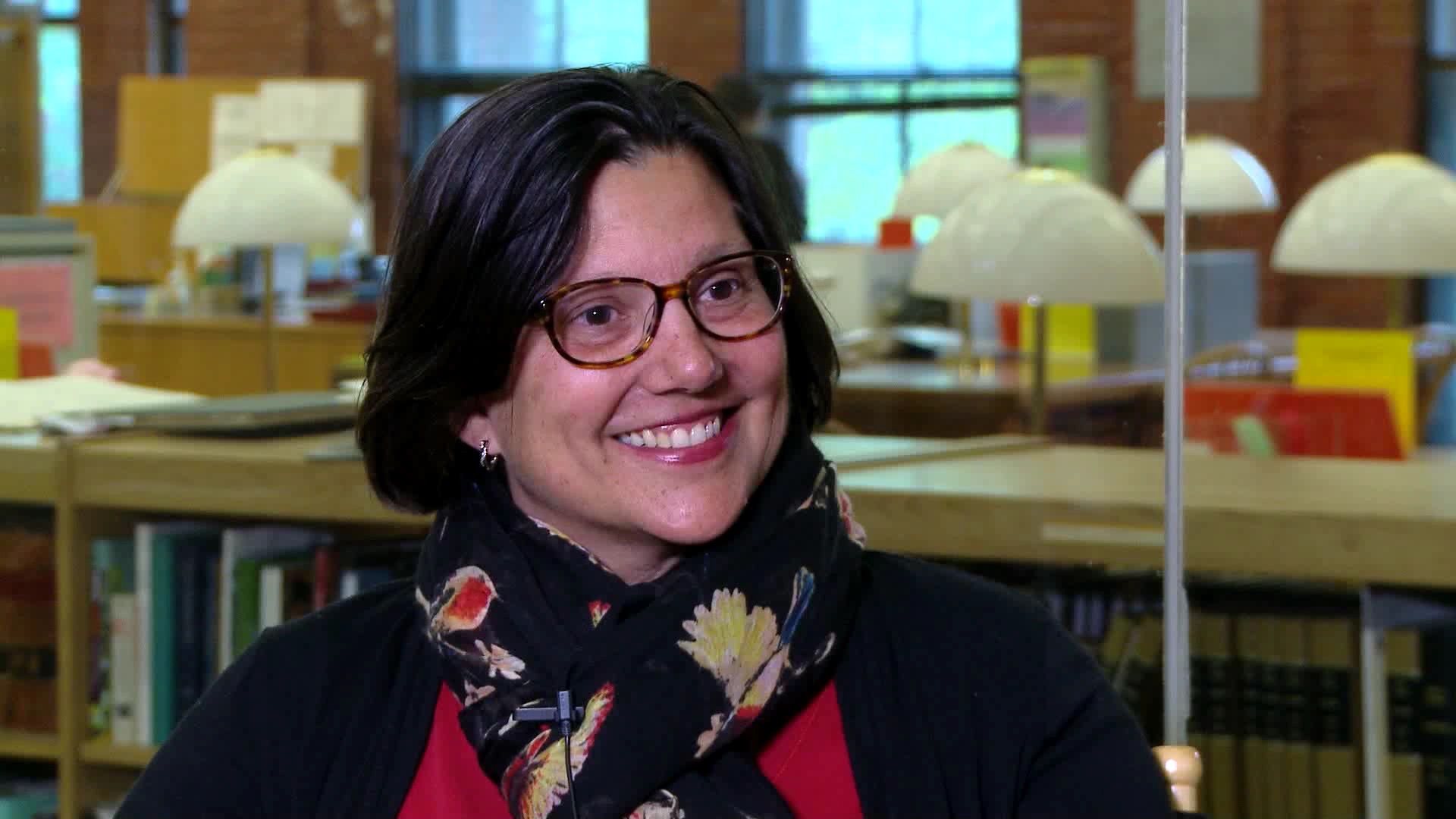 Robin Greiner, Class of 1986
Robin Greiner, Class of 1986
In this interview, Robin Greiner talks about the important role that friendship played in shaping her time at Smith. She reflects on Smith as a feminist and activist driven space, and the tensions that arose from that. Greiner participated in Smith’s Geneva study abroad program, and was a coxswain for the Smith College Crew Team.
Access to this interview is restricted. If you would like to view the transcript, please email Nanci Young at nyoung@smith.edu.
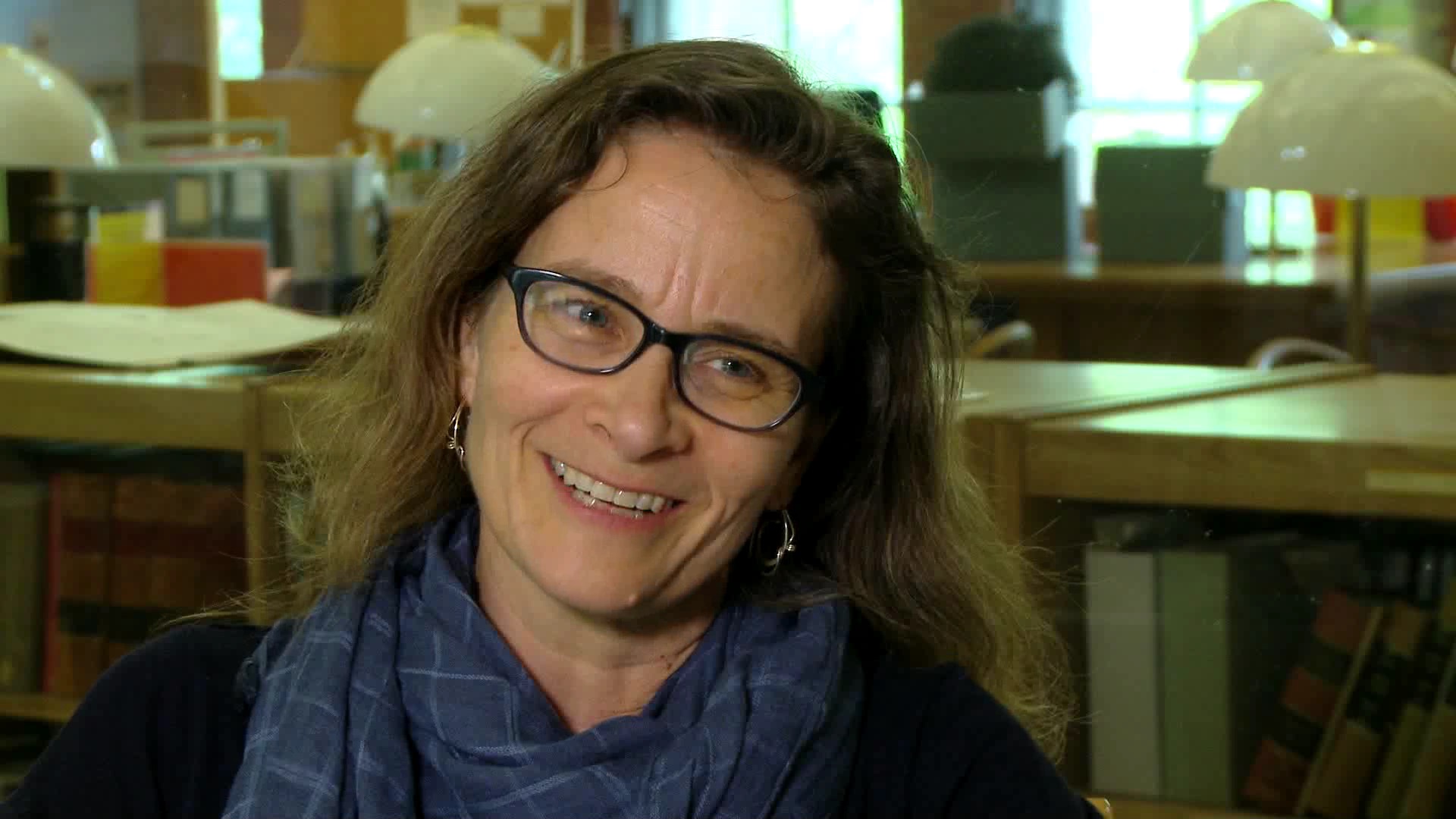 Mary Marcell, Class of 1986
Mary Marcell, Class of 1986
In this interview, Mary Marcell reflects on the social and political scenes on campus. Marcell remembers the relationship between Parsons and Hover House, as well as a campus wide emphasis on raising the visibility of issues affecting marginalized groups on campus.
Access to this interview is restricted. If you would like to view the transcript, please email Nanci Young at nyoung@smith.edu.
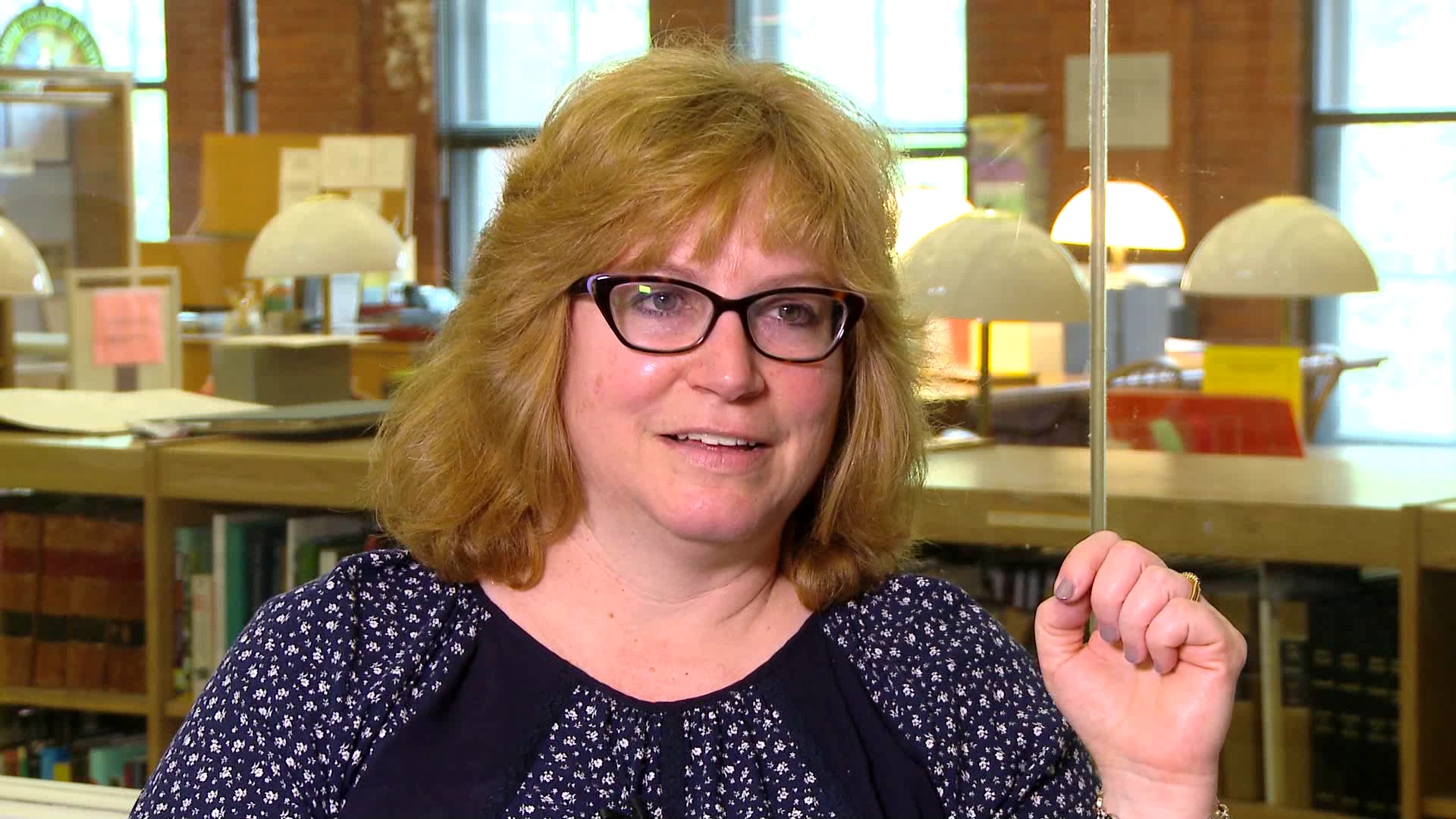 Deborah Wess, Class of 1986
Deborah Wess, Class of 1986
In this interview, Deborah Wess reflects on Smith’s political climate in the 80s. Wess talks about her involvement with a number of student-led activist groups on campus, including actions to divest from South Africa, and a “Love-In” to promote acceptance of LGBT members of the community.
Access to this interview is restricted. If you would like to view the transcript, please email Nanci Young at nyoung@smith.edu.
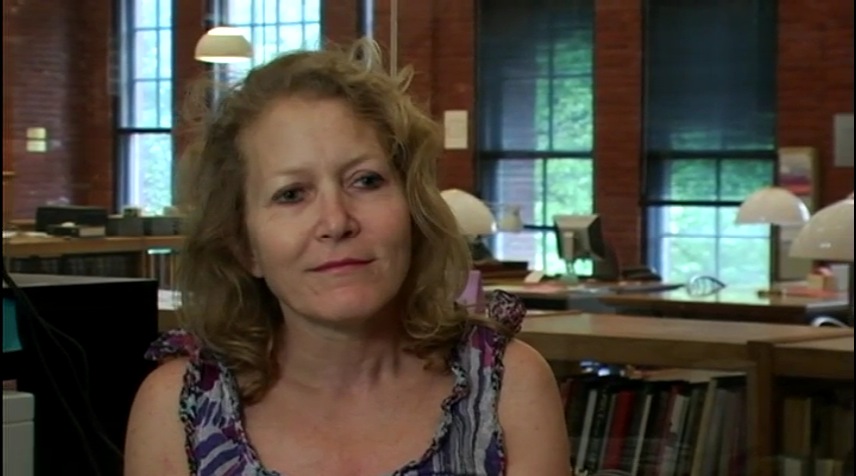 Monica Sargentini, AMS Class of 1987
Monica Sargentini, AMS Class of 1987
In this oral history, Monica Ricci Sargentini contrasts her education experience in Italy with Smith, specifically in regard to classes and social expectations. She talks about her academic interest in language and American literature, interests that drew her to the AMS Diploma Program. She ends her interview with a discussion about the value of women’s colleges in general and the American approach to life.
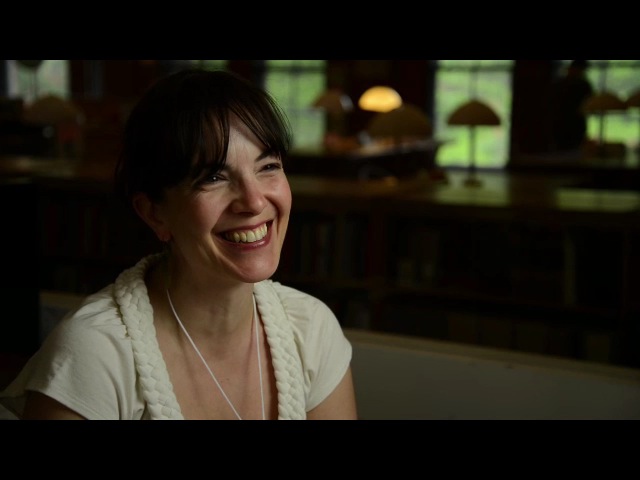 Christine Boutin, Class of 1988
Christine Boutin, Class of 1988
In this oral history, recorded on the occasion of her 25th reunion, Christine Boutin speaks about the importance of lifelong friendships which began at Smith and remembers Smith traditions, including Thursday night candlelight suppers and Friday teas. She recalls social justice activism on campus, including participation in the College Hall divestiture sit-in as well as challenges like experiencing class differences in the student body.
 Lisa Laskin, Class of 1988
Lisa Laskin, Class of 1988
In this oral history, Lisa Lauterbach Laskin, whose mother was Smith Class of 1957, reflects on the way Smith has changed since her mother’s years. She talks about her favorite tradition, Mountain Day, and the pleasure of spontaneity that it taught her.
Access to this interview is restricted. If you would like to view the transcript, please email Nanci Young at nyoung@smith.edu.
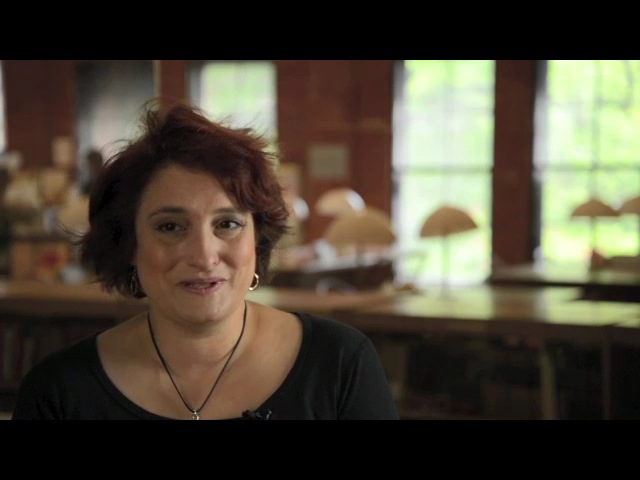 Lisa Morales, AC Class of 1988
Lisa Morales, AC Class of 1988
In this oral history, Lisa Morales speaks of her unique path to Smith and challenges faced by many Ada Comstock Scholars. Morales speaks of attending Smith for three years as the mother of a young son. She recalls bringing her mother to her first Illumination Night and the importance of that and other experiences for them both.
Access to this interview is restricted. If you would like to view the transcript, please email Nanci Young at nyoung@smith.edu.
Catherine Pyun, Class of 1988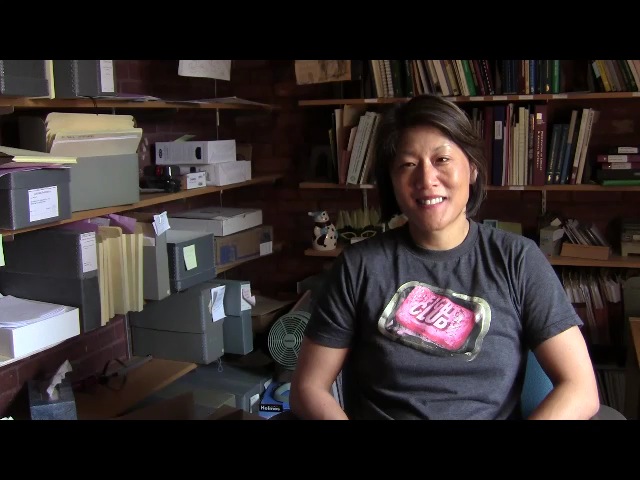
In this oral history Catherine Pyun speaks during her 25th reunion weekend. She discusses the role that her first visit to campus played her decision to apply to Smith and of making lifelong friends, including through her participation in sports. She also discusses the importance of having an engineering and science program for women at Smith.
Access to this interview is restricted. If you would like to view the transcript, please email Nanci Young at nyoung@smith.edu.
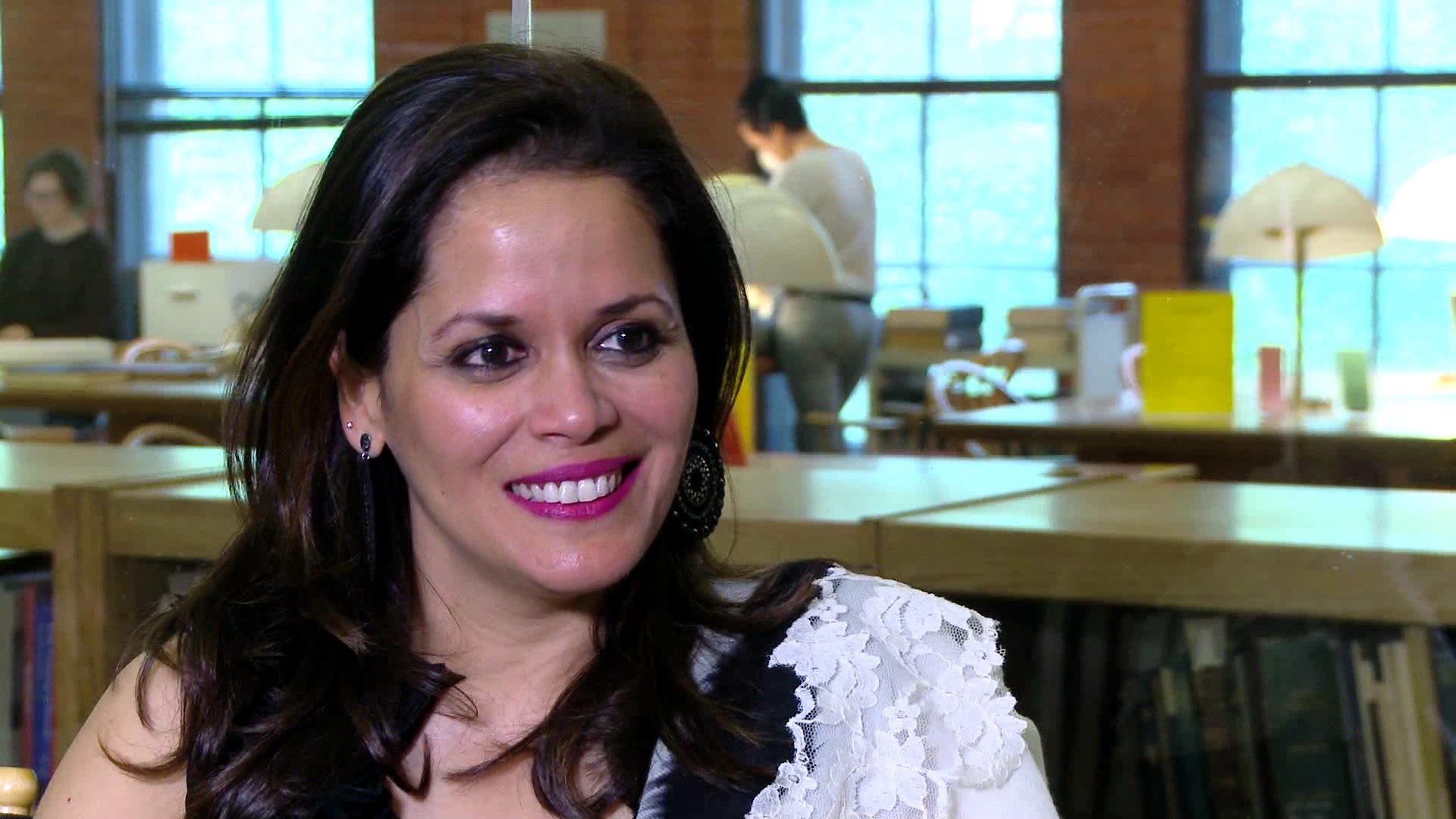 Mona Sinha, Class of 1988
Mona Sinha, Class of 1988
In this interview, Mona Sinha talks about her introduction to Smith as a transfer student, including finding community in the International Student Preorientation program. She talks about the student group asking for divestment from South Africa, including a takeover of College Hall. As an Economics major, Sinha spent her junior year in the Picker Program in Washington. Since graduation Sinha has worked to inspire women’s leadership education.

